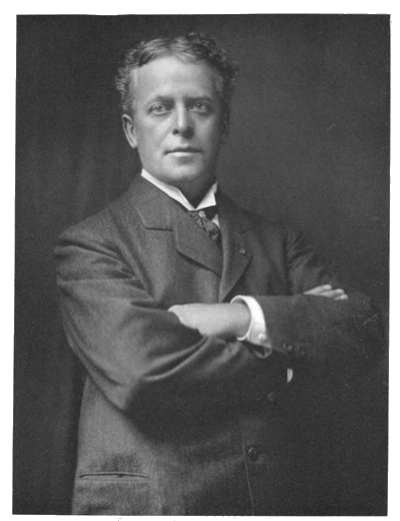Three Plays by Brieux
Member of the French Academy

Three Plays by Brieux.
With a Preface by BernardShaw. The EnglishVersions by Mrs.Bernard Shaw, St. JohnHankin and John Pollock.
London: A. C. Fifield,13 Clifford’s Inn, E.C. 1911.
[Copyright 1911 by Charlotte Frances Shaw. Enteredat Stationers’ Hall and at the Library of Congress,Washington, U.S.A. All rights reserved.]
Printed by G. Standring, Finsbury St., London, E.C.
Contents
Brieux: a portrait | Frontispiece |
Preface by Bernard Shaw | ix |
Maternity. Translated by Mrs. BernardShaw | liv |
The Three Daughters of M. Dupont. Translatedby St. John Hankin | 71 |
Damaged Goods. Translated by John Pollock | 176 |
Maternity (new version). Translated byJohn Pollock | 245 |
Preface
By Bernard Shaw.
From Molière to Brieux.
After the death of Ibsen, Brieux confronted Europe asthe most important dramatist west of Russia. In that kindof comedy which is so true to life that we have to call ittragi-comedy, and which is not only an entertainment buta history and a criticism of contemporary morals, he is incomparablythe greatest writer France has produced sinceMolière. The French critics who take it for granted thatno contemporary of theirs could possibly be greater thanBeaumarchais are really too modest. They have neverread Beaumarchais, and therefore do not know how verylittle of him there is to read, and how, out of the two variationshe wrote on his once famous theme, the secondis only a petition in artistic and intellectual bankruptcy.Had the French theatre been capable of offering a fieldto Balzac, my proposition might have to be modified. Butas it was no more able to do that than the English theatrewas to enlist the genius of Dickens, I may say confidentlythat in that great comedy which Balzac called ‘the comedyof humanity,’ to be played for the amusement of thegods rather than for that of the French public, there isno summit in the barren plain that stretches from MountMolière to our own times until we reach Brieux.
How the XIX century found itself out.
It is reserved for some great critic to give us a study ofthe psychology of the XIX century. Those of us who asadults saw it face to face in that last moiety of its dayswhen one fierce hand after another—Marx’s, Zola’
